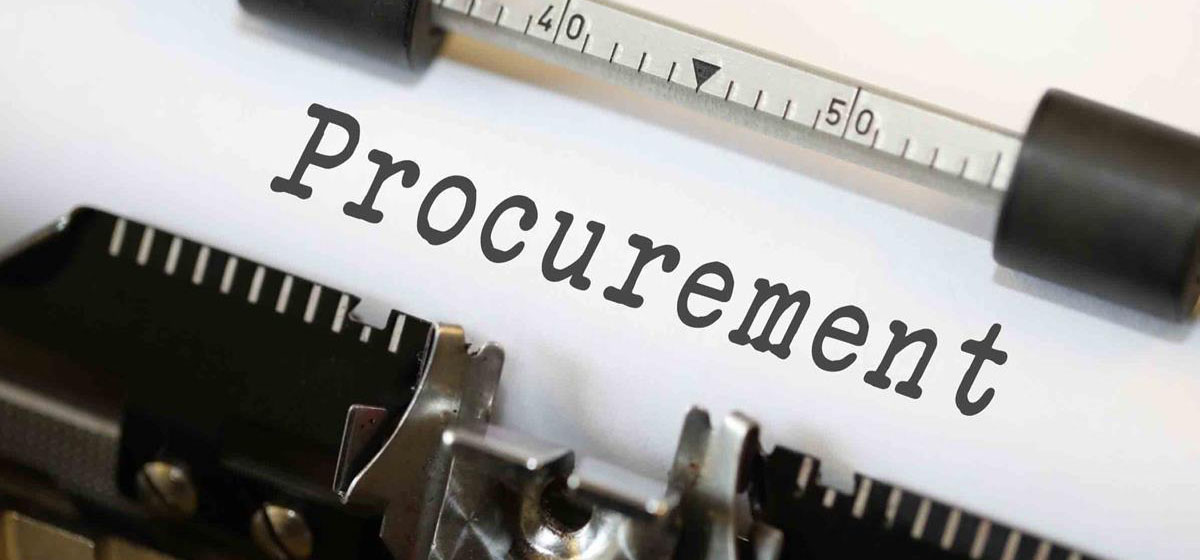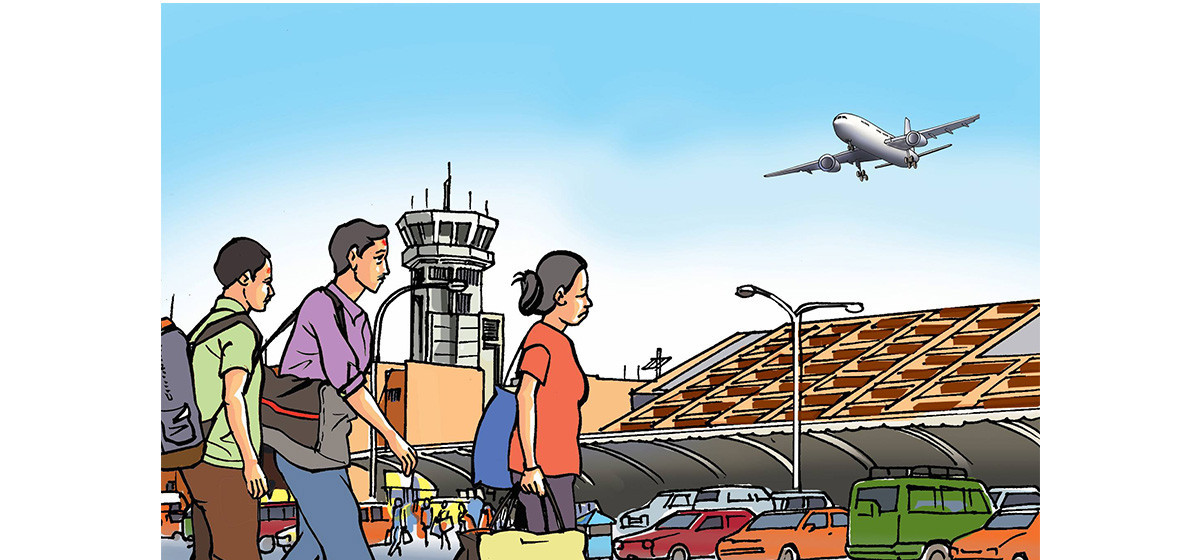
OR
Opinion
Issues of Public Procurement in Nepal
Published On: January 19, 2022 06:30 AM NPT By: Ram Bahadur Shah


Ram Bahadur Shah
The author is the chief of Gorkhapatra Corporation, Gandaki Provincial Office, Pokhara.news@myrepublica.com
More from Author
There are lots of problems in the procurement system of Nepal. Public entities procure without an approved multi-year and annual procurement plan, to say the least.
Maintaining good governance is one of the major challenges in Nepal. The Constitution of Nepal has made legal and structural provisions to guarantee good governance by ensuring equal and easy access of the people to the services and facilities provided by the state while making public administration fair, competent, impartial, transparent, free from corruption, accountable, and participatory. Public procurement management is a pillar of good governance. So, it needs to be discussed.
Public procurement means the purchase by public entities of goods, consultancy services, construction works, and other services. The Public Procurement Act, 2063 (BS) and Public Procurement Regulation, 2064 (BS) have been enforced as the public procurement laws of Nepal to make the processes and decisions relating to public procurement transparent, objective and reliable. To obtain the maximum returns of public expenditures in an economical and rational manner by promoting competition, fairness, honesty, accountability, and reliability in public procurement processes is another objective of making these legal provisions. A Directive relating to e-GP Operation, 2074 (BS) and another Directive relating to the Procurement through E.P.C., 2078 (BS) have also been enforced as the legal grounds of e-Government Procurement (e-GP). But, the implementation aspect of the prevailing procurement laws is weak. That is a major cause of corruption and irregularities.
The Public Procurement Monitoring Office (PPMO) has been established as the government agency and placed directly under the prime minister to ensure good governance in the procurement system of public entities. It has established a centralized e-Government Procurement (e-GP) System for nationwide public procurement management which can be taken as a positive step to promote E-governance. There is a need for strengthening the institutional capacity of the PPMO to make it more functional in maintaining transparency, accountability, effectiveness, efficiency, and economy in public procurement proceedings of Nepal. All the stakeholders have a pivotal role in maintaining good governance by making the public procurement system more transparent and result-oriented. The proper coordination among stakeholders at all levels in making the procurement system transparent and free from corruption is essential.
Challenges
To ensure access to information and communications technology (ICT) for all is one of the major challenges in the promotion of good governance. Easy access to the internet is crucial in the implementation of e-GP. The Right to Information (RTI) and transparency are interrelated with each other. Both have significant roles in the promotion of good governance. To ensure RTI for all is also considered as a big challenge. It is a bitter truth that matters to be public are kept secret and the matters to be kept secret are made public. A complete compliance of the laws, acts and rules has become another big challenge. To provide the feeling of good governance by controlling corruption-related activities is also a major challenge.
There are lots of problems in the procurement system of Nepal. It is said that public entities procure without an approved multi-year and annual procurement plan. Only need-based and timely public procurement can contribute to development and nation-building by utilizing public expenditure properly. Weak implementation of procurement contracts is a serious matter appearing in the procurement process. It is also said that the procurement is made in a piecemeal way to limit competition as the existing tendency of corruption. There may be the chance of preparing specifications to be matched with a certain brand only. The chance of cartel and corruption through direct purchase can happen due to simple procedure. So, such types of matters should be taken into consideration. There is a lack of continued monitoring of the public procurement proceedings. Corruption has been increasing due to the lack of an effective penal system. Thus, the culture of reward and penal system should be developed. We cannot find digital literacy during the implementation of the electronic procurement system as expected. So, it is a critical issue for public entities and the PPMO which is established as the guiding body.
Human resource development is a key aspect of proper functioning of the public procurement system. There is the need for capacity development of human resources at all levels by managing training, seminar, interaction programs etc for public officials involved in procurement. Training programs relating to e-GP should be targeted on the public entities which carry out massive procurement. It is better to conduct procurement-related training through the establishment of an online training portal. Human resources can be developed by including the content relating to public procurement in the curriculum of universities as specialization. The experts relating to procurement management should be acquired as permanent staff to develop professionalism. Professionalism is lacking in the bidders that affects procurement adversely. It should also be taken into consideration by the stakeholders.
Reform issues
The public procurement policy is necessary as a policy document to make the procurement system well-governed. Need and evidence-based policy should be formulated and implemented effectively. The monitoring and regulation could be focused on construction works in comparison to others. The area of project management should also be taken into consideration. The public procurement laws are process-oriented rather than result-oriented. Therefore, the procurement law needs to be amended. There is a trend of selecting a bid having the lowest price but the quality aspect is neglected by public entities. The procurement laws should clearly be attracted to focusing on the costs as well as quality of services. It is necessary to make the procurement system easy, smart, technology-friendly, and development-oriented. A procurement audit should be carried out to measure the effectiveness of public procurement. The promotion of integrity and ethics is the most important factor in making exemplary procurement behaviors.
Public procurement is an integral part of public financial management. Around 60 percent of the annual national budget is implemented through public procurement. Thus, It should be utilized to achieve maximum benefits for public interest. We can make it more result-oriented by adopting principles of public procurement and international best practices.
(The author is the chief of Gorkhapatra Corporation, Gandaki Provincial Office, Pokhara.)
You May Like This

Bitcoin, Techno Sapiens, and Blockchain Democracy
Nations are not permanent and tend to collapse if positive political goods are not delivered to citizens. Nepal is moving... Read More...

Debating BRI
Nepal needs to mainstream the BRI debate and analytically distinguish its pros and cons for Nepal’s long-term economic growth, political stability... Read More...

Call for justice, once again
Government should not miss this opportunity to conclude Nepal’s transitional justice process under Nepal’s own leadership and ownership ... Read More...



Just In
- Lack of investment-friendly laws raises concerns as Investment Summit approaches
- 550,000 people acquire work permits till April of current fiscal year
- Fixing a win by outlawing dissent damages democracy
- MoHP cautions docs working in govt hospitals not to work in private ones
- Over 400,000 tourists visited Mustang by road last year
- 19 hydropower projects to be showcased at investment summit
- Global oil and gold prices surge as Israel retaliates against Iran
- Sajha Yatayat cancels CEO appointment process for lack of candidates










_20220508065243.jpg)


Leave A Comment